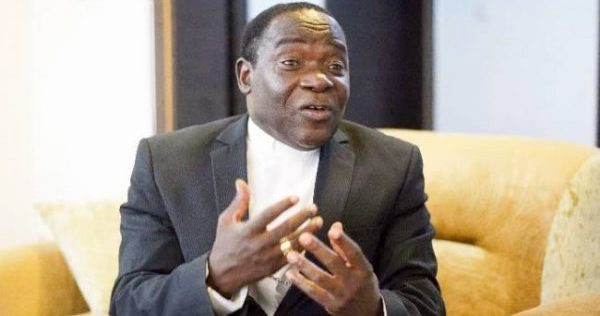Politics
Bishop Kukah warns of rising ethnic, religious biases in Nigerian universities

In a candid interview with Arise TV on Thursday, the Bishop of the Roman Catholic Diocese of Sokoto, Matthew Kukah, expressed grave concerns over the growing ethnic and religious biases in Nigerian universities.
The revered cleric lamented the decline of diversity and meritocracy in these institutions, particularly in Northern Nigeria, warning of far-reaching consequences for the nation’s social cohesion and progress.
Kukah’s remarks were prompted by the contrasting experiences he had during his recent engagements with universities in different parts of the country.
He recalled delivering a convocation lecture at the University of Calabar three weeks ago, where he was warmly received by the Chief Imam of the university.
However, this welcoming gesture stood in stark contrast to the stark reality in Northern Nigeria, where universities have reportedly shut their doors to the possibility of building churches on their campuses.
The bishop specifically highlighted the cases of Usman Dan Fodio University and Bayero University, both in Northern Nigeria, which have allegedly refused to allow the construction of churches within their premises.
Read Also: ONDO: Ex-gov Mimiko’s brother, Abbas, emerges as governorship candidate of ZLP
This, he argued, is a worrying trend that reflects the growing fanaticism and intolerance in the country.
Kukah said, “A mosque was constructed at the University of Nigeria, Nsukka. I delivered a convocation lecture in Calabar three weeks ago. After my lecture, the Chief Imam of the University came to congratulate me.
“But as I speak to you, Usman Dan Fodio, who is over 40 years old, Bayero University, and other universities in Northern Nigeria have decided to close their doors to the possibility of churches being built in the universities across this country.
“All this fanaticism we are seeing is expressed in public life. If students in the university or at the point of their growing up are not allowed to integrate and interrelate, and if churches or mosques cannot be built across this country, then there is a problem.”
Kukah’s concerns are rooted in the understanding that universities are meant to be bastions of intellectual freedom, diversity, and inclusivity.
By denying students the opportunity to interact and integrate with people from different backgrounds, these institutions are failing in their mission to shape future leaders who can navigate the complexities of a diverse society.
The bishop’s warning is particularly poignant given the historical role of universities as melting pots of ideas and cultures.
By promoting ethnic and religious biases, these institutions risk entrenching divisions and fuelling the very conflicts that have long plagued the nation.
As Nigeria grapples with the challenges of nation-building and social cohesion, the alarm sounded by Bishop Kukah serves as a stark reminder of the need for collective action to address the rising tide of intolerance and bigotry in our institutions of higher learning.
The future of our nation depends on our ability to foster inclusive and diverse spaces that nurture critical thinking, creativity, and collaboration among people from all walks of life.
Join the conversation
Support Ripples Nigeria, hold up solutions journalism
Balanced, fearless journalism driven by data comes at huge financial costs.
As a media platform, we hold leadership accountable and will not trade the right to press freedom and free speech for a piece of cake.
If you like what we do, and are ready to uphold solutions journalism, kindly donate to the Ripples Nigeria cause.
Your support would help to ensure that citizens and institutions continue to have free access to credible and reliable information for societal development.
























